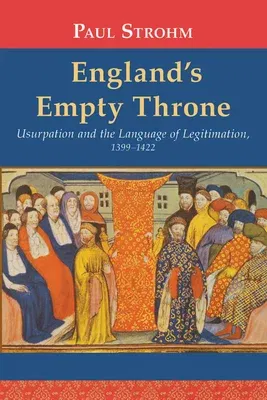Paul Strohm
(Author)England's Empty Throne: Usurpation and the Language of Legitimation, 1399-1422Paperback, 30 June 2006

Qty
1
Turbo
Ships in 2 - 3 days
In Stock
Free Delivery
Cash on Delivery
15 Days
Free Returns
Secure Checkout
Print Length
294 pages
Language
English
Publisher
University of Notre Dame Press
Date Published
30 Jun 2006
ISBN-10
0268041210
ISBN-13
9780268041212
Description
Product Details
Author:
Book Format:
Paperback
Country of Origin:
US
Date Published:
30 June 2006
Dimensions:
23.57 x
15.95 x
1.88 cm
ISBN-10:
0268041210
ISBN-13:
9780268041212
Language:
English
Location:
Notre Dame, IN
Pages:
294
Publisher:
Weight:
494.42 gm

